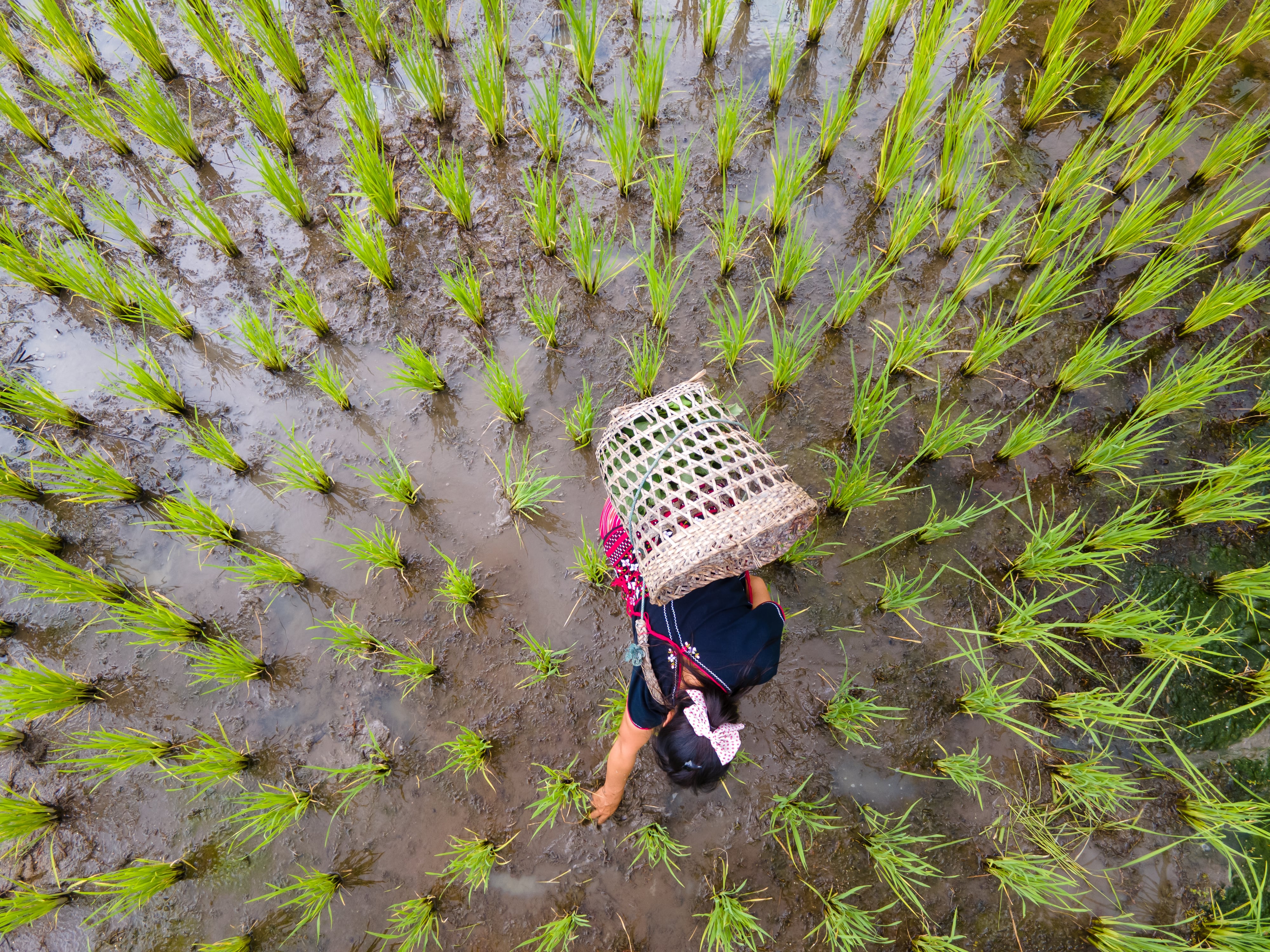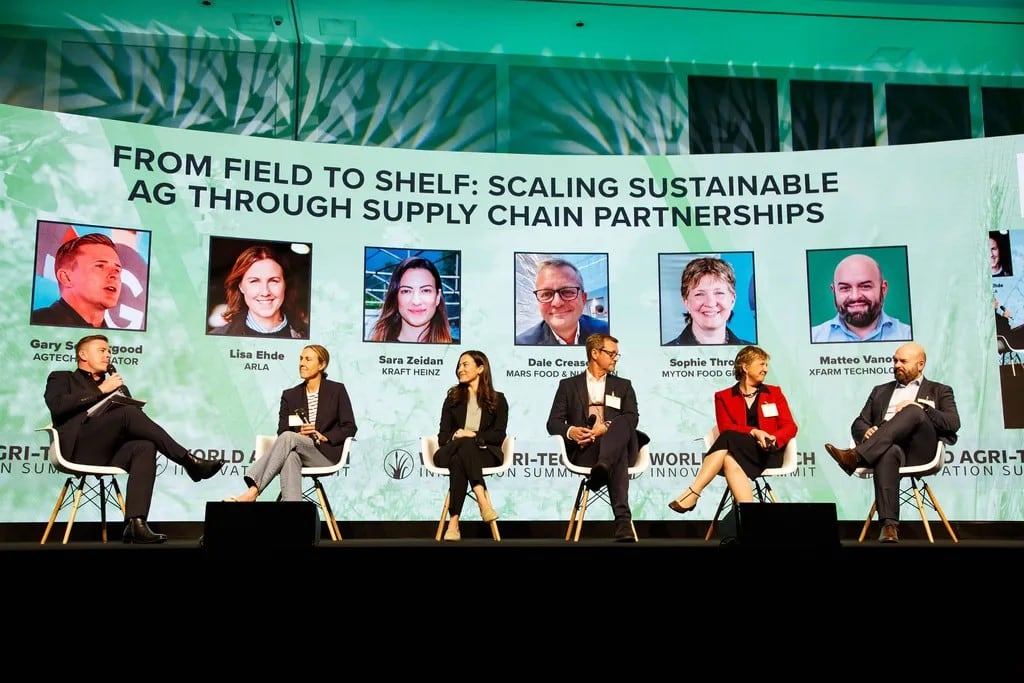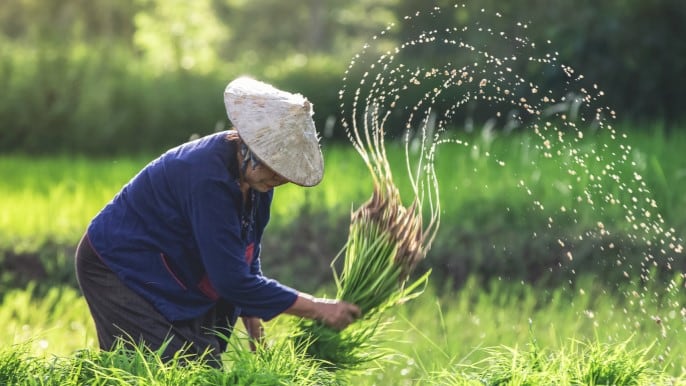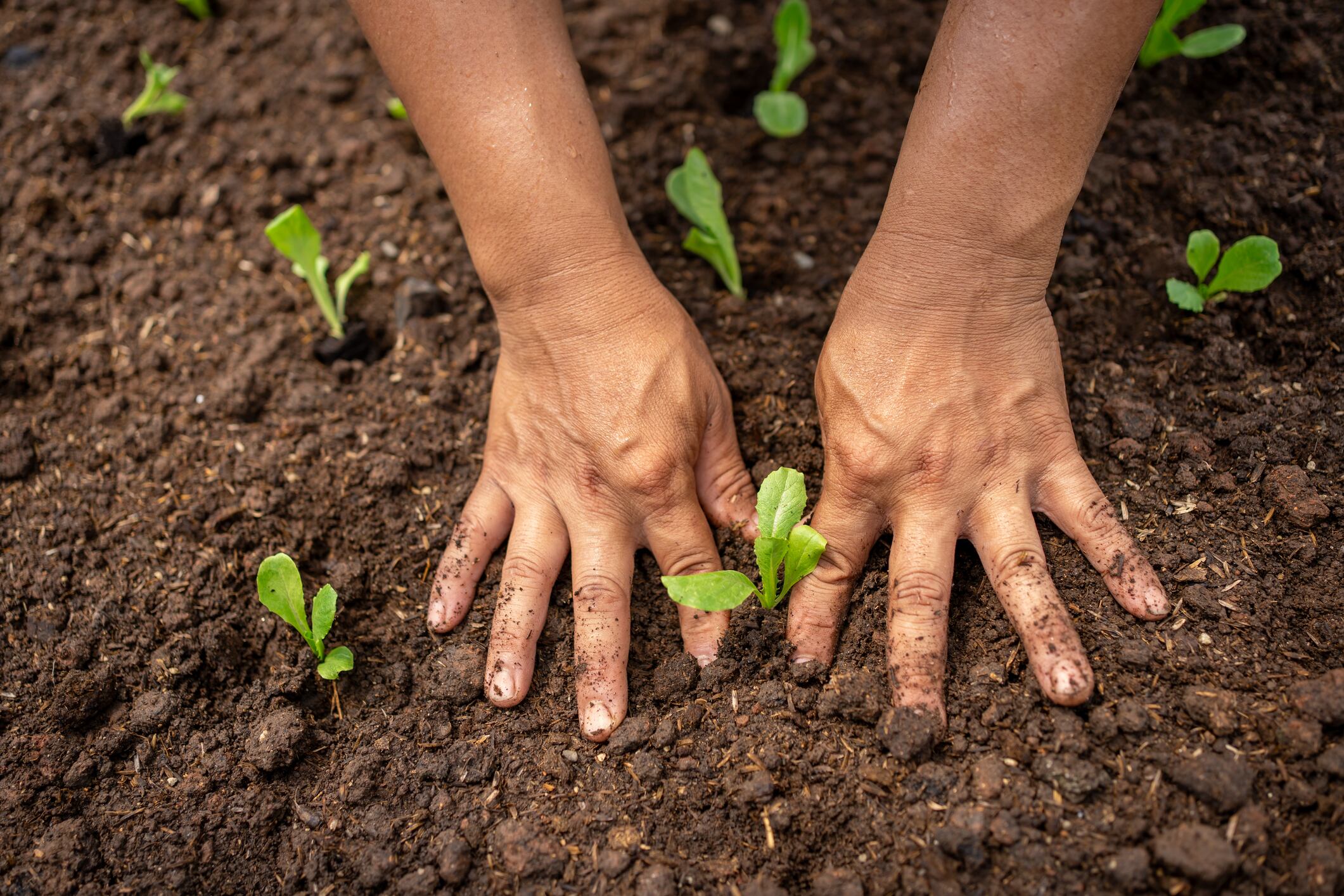In September, the company announced it that joined the Direct Seeded Rice Consortium (DSRC), global collaborative initiative of public and private organisations led by the International Rice Research Institute (IRRI) as a gold-member.
With its nature-derived biomolecules, Agrobiomics aims to support the initiative’s goal to promote sustainable, efficient, and climate-resilient rice production.
Speaking to AgTechNavigator at the World Agri-Tech Innovation Summit in London, CEO Ananda Scherner said its technology could potentially change the way rice is cultivated in Asia.
“In Asia today, most of the rice is transplanted – you create the seedlings and then transplant those in the field. This means you use a lot more water to produce the crop. What our technology does is make the plant more robust from day one so they can cope with the environmental conditions, so you can plant the seed directly into the soil. Our solution enables a game-changing way of producing rice.”
She added that its technology can help rice cope with challenges such as salinity in the soil, a large and worsening problem in rice production.
“In order to put the seed directly into the soil, you need to make sure the seeds are robust enough to germinate in soil that is saline and so on. Our technology is needed to help ramp up the seeds in the soil when the conditions are not so ideal,” said Scherner.
Additionally, reducing the use of water can help lower greenhouse gas (GHG) emissions from rice farming.
“Allowing the crop to reduce the need for water reduces the need for irrigation. Plants also lose water to the environment through evapotranspiration, which contributes to carbon emissions. By reducing water use and limiting evapotranspiration, carbon emissions can be lowered,” said Scherner.
The company has already had a few trials in Vietnam showing promising results such as increasing yield by more than 30%.
With more trials, it hopes to better understand the potential of its biomolecule.
“For us, bringing our solution to rice is incredibly important as there are so many hectares of rice being produced in Asia. We really hope that this technology will a perfect fit into the cultivation of rice,” said Scherner.
Complex innovation, simple application
The firm applies its biomolecules in a formulation which can be used to treat the seeds or used directly on the soil or on the plants.
“What we want to make sure is that the use of the technology is seamless for farmers. They will continue cultivating the way that they do. They will treat the seed the same way that they have been treating for years. They will spray the same way that they have been spraying. Even though it’s complex and innovative, we try to make the use of the technology as simple as possible,” said Scherner.
Moving forward, the company is seeking a partner to help it enter the Asian market.
“We want to find the right partner to go to market with and help us with the business model that would make sense for us and for the farmers. Because Asia is a very complex market with a lot of small holdings. We need to make sure that the product arrives to the end user at the right cost. We want o make sure it is accessible to all,” said Scherner.





